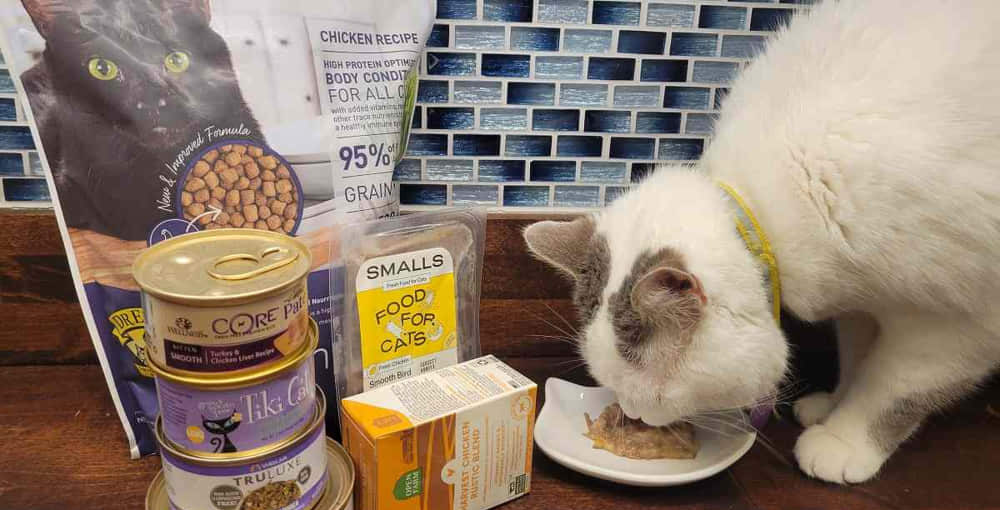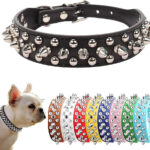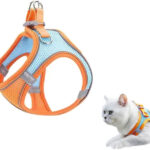Choosing the right food for your cat, especially if they suffer from sensitivities, is crucial for their health and well-being. For many cats with digestive issues or food allergies, Grain-Free Cat Food for Sensitive Cats is an ideal solution. In this FAQ guide, we’ll address the most common questions about Grain-Free Cat Food for Sensitive Cats and help you find the perfect solution for your furry friend.
1. What is Grain-Free Cat Food for Sensitive Cats?
Grain-Free Cat Food for Sensitive Cats is specially formulated to exclude grains such as wheat, corn, and soy, which are often used as fillers in traditional cat food. Instead, it focuses on providing high-quality animal proteins like chicken, turkey, or fish, along with nutrient-rich vegetables. This makes it a great choice for cats with food sensitivities or digestive issues.
2. Why Should I Consider Grain-Free Food for My Sensitive Cat?
If your cat struggles with digestive discomfort, skin issues, or food allergies, switching to Grain-Free Cat Food for Sensitive Cats might improve their health. Grains are common allergens, and for many cats, they can cause vomiting, diarrhea, or itchy skin.
Additionally, Grain-Free Cat Food is often higher in protein, which aligns more closely with a cat’s natural dietary needs, as they are obligate carnivores.
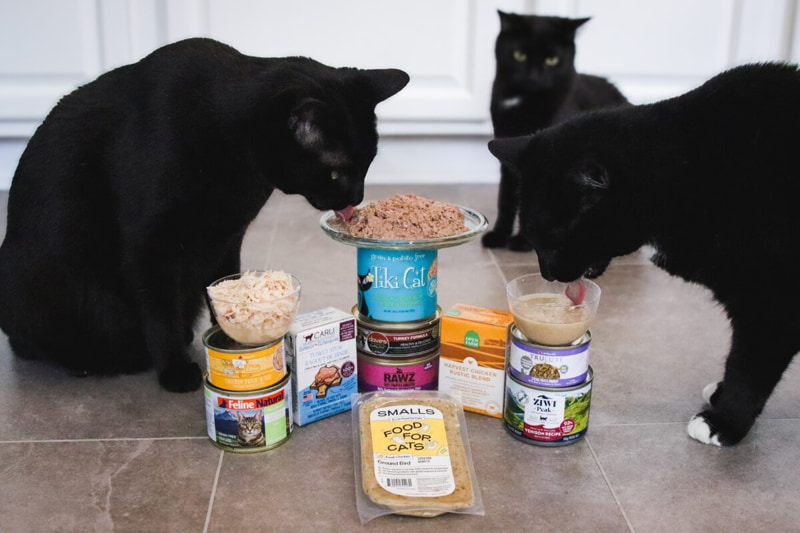
3. How Do I Know if My Cat Needs a Grain-Free Diet?
If your cat experiences any of the following, they may benefit from Grain-Free Cat Foods:
- Digestive issues like vomiting, diarrhea, or constipation
- Skin irritations such as itching, rashes, or hair loss
- Behavioral changes such as lethargy or a lack of appetite
4. What Are the Benefits of Grain-Free Cat Food for Sensitive Cats?
There are several advantages to feeding your cat Grain-Free Cat Food for Sensitive Cats:
- Better Digestion: By removing grains, many cats experience fewer digestive upsets, such as vomiting and diarrhea.
- Healthier Skin and Coat: Many grain-free foods are rich in omega-3 and omega-6 fatty acids, which promote healthy skin and reduce itching.
- More Protein: These diets tend to have higher animal-based protein content, providing essential nutrients for muscle maintenance and energy.
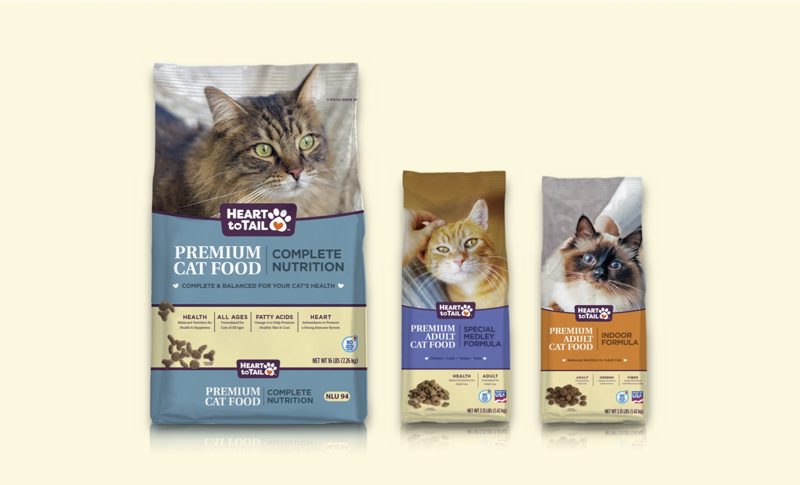
5. What Ingredients Should I Look for in Grain-Free Cat Food
When selecting Grain-Free Cat Food for Sensitive Cats, it’s important to choose a product with high-quality ingredients. Here’s what to look for:
- Animal protein as the first ingredient: Chicken, turkey, or fish should be the primary protein source.
- No fillers or artificial additives: Avoid foods that contain unnecessary fillers, preservatives, or artificial colors.
- Fiber-rich ingredients: Sweet potatoes, peas, and pumpkins provide healthy fiber that aids digestion.
- Healthy fats: Look for omega-3 and omega-6 fatty acids to support your cat’s coat and skin.
6. Are There Any Risks to Grain-Free Cat Food for Sensitive Cats?
While Grain-Free Cat Food for Sensitive Cats offers many benefits, there are a few considerations to keep in mind:
- Higher fat content: Some grain-free foods can be higher in fat, which may contribute to weight gain if not properly managed.
- Potential for heart disease: There have been concerns about the potential link between certain ingredients in grain-free foods (like peas and lentils) and heart disease in pets. However, this is still being studied, and the risk is minimal when choosing high-quality foods.
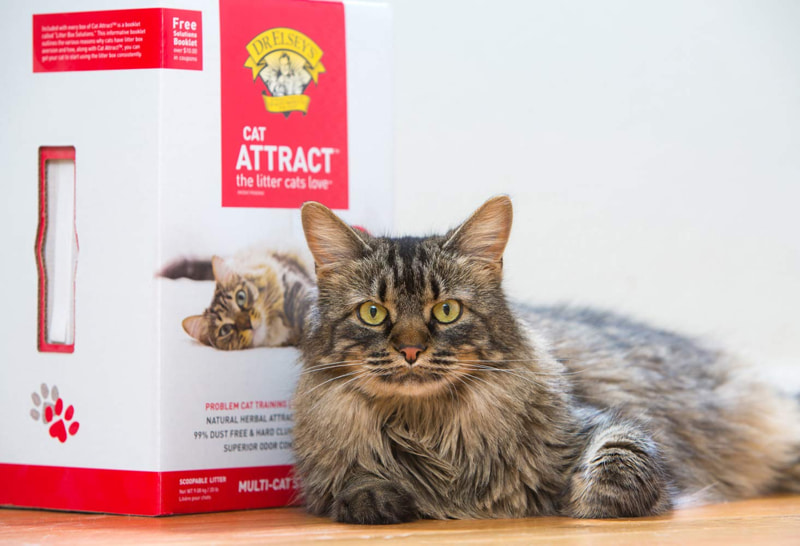
7. How Should I Transition My Cat to Grain-Free Food?
Transitioning to Grain-Free Cat Food for Sensitive Cats should be done gradually. Start by mixing a small amount of grain-free food with your cat’s current food and gradually increase the proportion over 7-10 days. This allows your cat’s digestive system to adjust without causing discomfort.
8. How Do I Know if the Grain-Free Diet Is Working?
Once your cat has transitioned to Grain-Free Cat Food for Sensitive Cats, monitor them for improvements. You should see:
- Improved digestion: No more vomiting or diarrhea.
- Healthier skin and coat: Less itching and a shinier coat.
- More energy: A return to your cat’s usual playful behavior.
- Weight management: Your cat should maintain a healthy weight with the right amount of food and exercise.
If you don’t notice improvements or symptoms worsen, consult your vet for further guidance.
9. What Are Some Recommended Brands of Grain-Free Cat Food for Sensitive Cats?
Some trusted brands that offer high-quality Grain-Free Cat Food for Sensitive Cats include:
- Blue Buffalo Wilderness: Known for their high-protein, grain-free formulas with natural ingredients.
- Wellness CORE: Offers grain-free options with easily digestible proteins and added vitamins.
- Natural Balance L.I.D.: Specializes in limited-ingredient diets that help reduce food sensitivities.
These brands have good reputations for providing balanced nutrition and can be a great place to start.
If your cat has food sensitivities or digestive issues, Grain-Free Cat Food for Sensitive Cats may be the ideal solution. By eliminating grains and focusing on high-quality proteins and other nutritious ingredients, you can help your cat live a healthier, more comfortable life. Be sure to consult with your veterinarian to choose the best food for your cat’s needs and make the transition as smooth as possible.
Refer to some related product lines:
Whitefish & Egg Recipe with Added Nutrients – 3 lb. Bag (Pack of 2)
Salmon & Brown Rice Recipe, 6 lb. Bag (2-Pack)
Blue Buffalo Basics Fish & Potato Recipe, Skin & Stomach Care, 11-lb Bag

